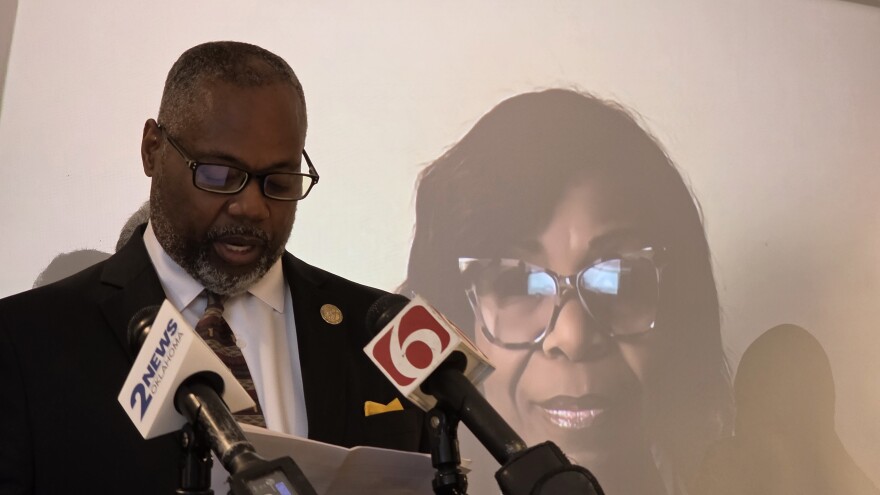The two descendants of Muscogee Freedmen at the center of a major citizenship case celebrated their victory in court at a press conference in downtown Tulsa Thursday.
“I and all other Black Creeks are now Creek citizens once again,” said attorney Damario Solomon-Simmons, himself a freedmen descendant.
The Muscogee Supreme Court unanimously ruled Wednesday that Rhonda Grayson and Jeffrey Kennedy were unjustly denied their tribal citizenship when they applied in 2019. Grayson and Kennedy are descendants of Black people once enslaved by the tribe.
Kennedy became emotional as he recounted hearing the news of the court’s decision.
“It was very powerful for me,” he said.
Grayson said they “secured a sacred duty to honor our ancestors.”

Solomon-Simmons said his team had reached out to the Muscogee Nation to schedule a meeting sometime next week to begin “healing.”
“The Creek Nation won,” said Ron Graham, chairman of the Muscogee Creek Freedmen Coalition, of the ruling.
Solomon-Simmons said it is roughly estimated there are 100,000 Creek Freedmen descendants.
In its ruling, the Muscogee Nation Supreme Court struck the “by blood” language from citizenship requirements, a key determining factor for many tribes in deciding who is a member.
Principal Chief David Hill released a video statement via social media Thursday in response to the ruling, saying it “left many questions unanswered.”
“We understand that this is a polarizing issue,” said Hill. “We encourage everyone, no matter how you feel at this moment, to remain respectful and dignified.”
Freedmen descendants are not recognized by federal courts when it comes to criminal jurisdiction.



